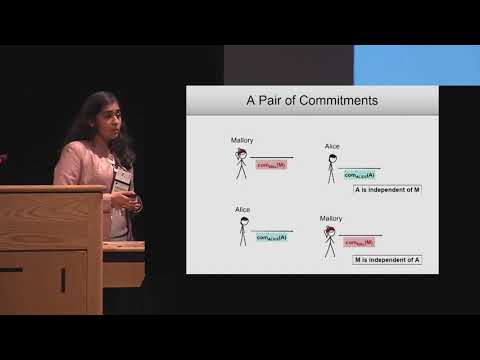CryptoDB
Non-interactive Non-malleability from Quantum Supremacy
| Authors: | |
|---|---|
| Download: |
|
| Abstract: | We construct non-interactive non-malleable commitments without setup in the plain model, under well-studied assumptions.First, we construct non-interactive non-malleable commitments w.r.t. commitment for $$\epsilon \log \log n$$ tags for a small constant $$\epsilon > 0$$, under the following assumptions:1.Sub-exponential hardness of factoring or discrete log.2.Quantum sub-exponential hardness of learning with errors (LWE). Second, as our key technical contribution, we introduce a new tag amplification technique. We show how to convert any non-interactive non-malleable commitment w.r.t. commitment for $$\epsilon \log \log n$$ tags (for any constant $$\epsilon >0$$) into a non-interactive non-malleable commitment w.r.t. replacement for $$2^n$$ tags. This part only assumes the existence of sub-exponentially secure non-interactive witness indistinguishable (NIWI) proofs, which can be based on sub-exponential security of the decisional linear assumption.Interestingly, for the tag amplification technique, we crucially rely on the leakage lemma due to Gentry and Wichs (STOC 2011). For the construction of non-malleable commitments for $$\epsilon \log \log n$$ tags, we rely on quantum supremacy. This use of quantum supremacy in classical cryptography is novel, and we believe it will have future applications. We provide one such application to two-message witness indistinguishable (WI) arguments from (quantum) polynomial hardness assumptions. |
Video from CRYPTO 2019
BibTeX
@article{crypto-2019-29925,
title={Non-interactive Non-malleability from Quantum Supremacy},
booktitle={Advances in Cryptology – CRYPTO 2019},
series={Lecture Notes in Computer Science},
publisher={Springer},
volume={11694},
pages={552-582},
doi={10.1007/978-3-030-26954-8_18},
author={Yael Tauman Kalai and Dakshita Khurana},
year=2019
}

